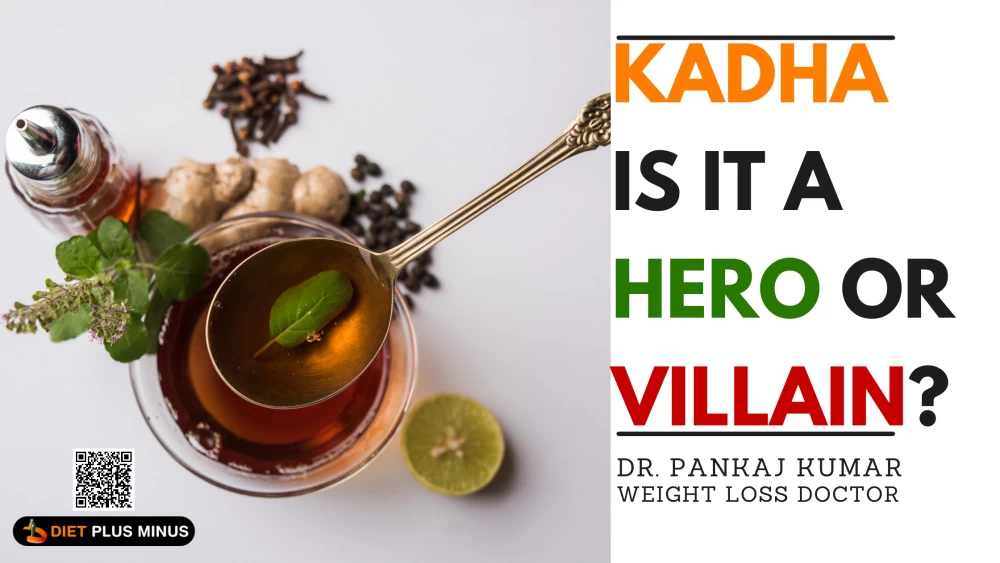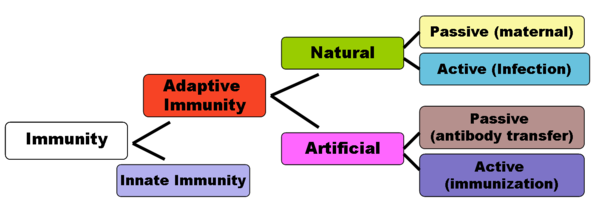
- 12th September 2020
Table of Contents
- Kadha: is it a hero or villain?
- What is kadha (decoction)?
- To know more about kadha, please visit our previous blog...Immunity-Boosting Kadha
- Buy Kadha online
- Which factors produce side effects?
- Kadha-induced abdominal symptoms
- Kadha induced common abdominal symptoms
- When to see a doctor?
- Nose bleeding
- Mouth blisters
- Too much acidity
- Having trouble urinating
- Frequent stomach ache
- Rashes
- Constipation
- The correct way to consume kadha
- Do not drink more than 50 ml at a time.
- Do not drink it in the morning with an empty stomach. Have it in the evening for better results.
- Take all the ingredients in 100-200 ml of water and let it boil until it is reduced to 50 ml.
- Do not drink it too hot.
- Useful Links:
Kadha: is it a hero or villain?
Natural and home remedies are becoming extremely popular nowadays. One such homemade remedy is a herbal decoction primarily known as kadha, which is a go-to of almost every Indian mom to cure a common cold, flu, fever, and other health-related issues. Everything has its pros and cons, and so does kadha. In this article, let’s find out the risks and threats associated with the consumption of this decoction.
What is kadha (decoction)?
Kadha is a medicinal drink made from certain organic compounds like herbs and spices. Today all of us are having this drink to strengthen our immunity and protect ourselves from coronavirus including the omicron variant.
To know more about kadha, please visit our previous blog...Immunity-Boosting Kadha
Buy Kadha online
Which factors produce side effects?
-
Too much of anything is never good: Black pepper, cinnamon, turmeric, giloy, ashwagandha, cardamom, and dry ginger are some of the most commonly used ingredients in a kadha. All of these compounds produce heat in the stomach. Therefore, if taken more than required, they can produce harmful effects on our health, especially in the abdominal system. Also, the amount of kadha to be consumed depends upon age. If an aged person consumes more than 50ml a day, it might negatively affect his overall health.
-
The human body is prone to allergies: Consumption of such ingredients which might not suit your system can have both short and long-term effects on your health.
-
Seasonal factors: The ingredients used must be determined according to the present season. Since the ingredients are mostly warm they can cause severe side effects in summers if not taken carefully.
Kadha-induced abdominal symptoms
When we talk about immunity, a few things spontaneously come into the mind like Ayurvedic Kadha and other medications, vitamin C, Vitamin D, Some micronutrients like Zinc, selenium, antioxidants, etc but what do you think? Is it needed in absence of appropriate protein intake? The answer is no!!! You may be surprised and ask a question how does protein come into the play of immunity? well, let's discuss the basics of immunity first.
Immunity can be classified into innate or adaptive. Innate immunity comes from the mother. Adaptive or acquired immunity develops over time. It can be further divided into natural, artificial, active, and passive. All these immunities are mediated by antibodies that are made up of proteins which are known as immunoglobulins.
So from a brief discussion, it is now clear that immunity-boosting protein is required and you must take an adequate amount of protein. Taking kadha, vitamin C and other supplements in absence of an adequate amount of protein are just like grinding air inside a mixer grinder for a long time. Once you start taking an adequate protein, your body will start responding to immunity-boosting measures.
Vegetarian people can choose vegan protein and non-vegetarian people may get it from egg, chicken, and fish. It is important to mention here when you choose the source of protein, always choose healthy options. You can find these proteins in nearby health stores or you can buy them online.
Now the question arises of how to take an adequate amount of protein. Which is better? How to decide and how much should I take?
well, our next article is coming on protein supplements. Now come again to continue the remaining part of kadha.
|
Name |
Side effects |
Recommended dosage |
|
Turmeric |
Nausea, Dizziness, Diarrhea |
500 mg - 3 g |
|
Cinnamon |
Liver Damage, Low Blood Sugar, Acidity |
0.11 mg coumarin per kg of body weight |
|
Dry Ginger |
Constipation, Stomachache, Diarrhea, Excessive Menstrual Flow |
250 mg – 2 g |
|
Ashwagandha |
Acidity, Vomiting, Diarrhea, Stomach Ulcers |
210 mg – 600 mg |
|
Giloy |
Constipation, Low Blood Sugar |
300 mg – 1 g |
|
Black Pepper |
Intestinal Irritation, Stomach Burning |
1 g – 3 g |
|
Cardamom |
Acidity, Intestinal Spasms, Loss of Appetite |
1 g – 3 g |
When to see a doctor?
We Indians have two significant problems, one is a sedentary lifestyle and the second is plenty of carbohydrate-rich food intake. Probably a sedentary lifestyle is a problem in every country but Indians consume less amount of net protein as compared to other countries, So we are prone to develop lifestyle diseases like fatty liver, prediabetes, diabetes, hypertension, heart disease, etc.
In any medical OPD, the most common category of patients is having gas inside the belly. Probably it is the effect of intake of high FODMAP (fermentable oligosaccharides disaccharides monosaccharides and polyols) food.
If someone is already suffering from severe gastritis, irritable bowel syndrome, functional dyspepsia, fatty liver, or any chronic gastro-intestinal disease, kadha may not be beneficial for these individuals. So, it is recommended to see a doctor if you experience the following symptoms:
-
Nose bleeding
-
Mouth blisters
-
Too much acidity
-
Having trouble urinating
-
Frequent stomach ache
-
Rashes
-
Constipation
The correct way to consume kadha
-
Do not drink more than 50 ml at a time.
-
Do not drink it in the morning with an empty stomach. Have it in the evening for better results.
-
Take all the ingredients in 100-200 ml of water and let it boil until it is reduced to 50 ml.
-
Do not drink it too hot.
- Take care of the quantity of each ingredient to be put in decoction.
- In case you have allergies or any other disorder, consult your physician before taking this drink.
-
It is usually taken for a particular course of time. Do not consume more than the required period.

Useful Links:
How To Get Enrolled? I Register/log in I Blog I Subscription Plans I Calculator I Exercises I All Testimonials I Before and After I Recipe I Amazon Pantry I Shop with Amazon I Amazon Daily Deals I Facebook I Twitter I Linkedin I Youtube
(We are affiliated with Amazon. in)















